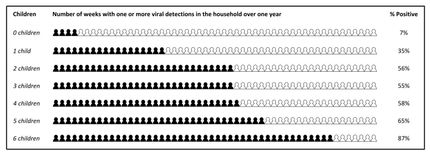Yerkes researchers propose ambitious new strategies for AIDS vaccine research
Unraveling how African nonhuman primates adapt to HIV-like viruses may lead to vaccine
Researchers at the Yerkes National Primate Research Center, Emory University, believe conventional vaccine strategies should not be the only avenue explored in the development of an effective AIDS vaccine. Based on studying simian immunodeficiency viruses (SIVs) in African nonhuman primates, they propose an additional new approach to the AIDS vaccine research agenda in a commentary featured in Nature medicine . Their recommendations outline specific research priorities and describe how each may lead to a novel "out of the box" approach for developing an AIDS vaccine.
"Developing an effective AIDS vaccine has eluded scientists because the virus is tricky," says Guido Silvestri, MD, a Yerkes affiliate scientist and director of clinical virology at the University of Pennsylvania School of Medicine and lead author of the commentary. Silvestri, along with co-author James Else, DVM, associate director for veterinary resources at Yerkes, writes, "Over 25 years after the discovery of HIV as the etiological agent of AIDS, no effective vaccine for the disease is available."
Silvestri and Else propose that lessons learned from studying SIVs in their natural nonhuman primate hosts may provide a path to an effective AIDS vaccine. SIVs are found exclusively in African nonhuman primate species and represent the original source of human immunodeficiency viruses (HIV-1 and HIV-2). More than 40 species of African monkeys are infected in the wild with SIVs. Yet, virtually none with the exception of chimpanzees progresses to HIV/AIDS or gets sick. Evolution has enabled them to adapt to SIVs and co-exist peacefully with chronic infection.
"Nature is giving us a message," says Silvestri. "Figure out how these monkeys can deal with the virus, and then maybe you can get humans to do the same thing." In particular, Silvestri notes additional studies of sooty managbeys – a medium–sized African monkey – are critical for the AIDS vaccine effort and understanding why SIV infection does not progress to HIV/AIDS. SIV-infected sooty mangabeys develop a high viral load that does not increase their risk for developing AIDS. Additionally, the SIV virus is rarely transmitted from mothers to babies.
Most read news
Topics
Organizations
Other news from the department science

Get the life science industry in your inbox
By submitting this form you agree that LUMITOS AG will send you the newsletter(s) selected above by email. Your data will not be passed on to third parties. Your data will be stored and processed in accordance with our data protection regulations. LUMITOS may contact you by email for the purpose of advertising or market and opinion surveys. You can revoke your consent at any time without giving reasons to LUMITOS AG, Ernst-Augustin-Str. 2, 12489 Berlin, Germany or by e-mail at revoke@lumitos.com with effect for the future. In addition, each email contains a link to unsubscribe from the corresponding newsletter.


















































